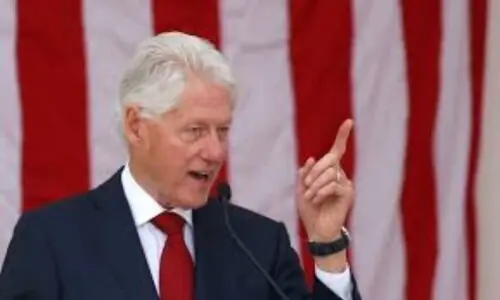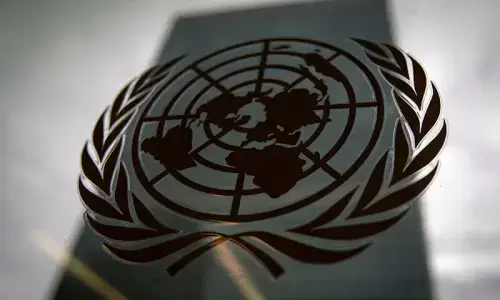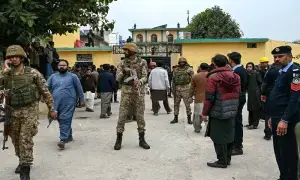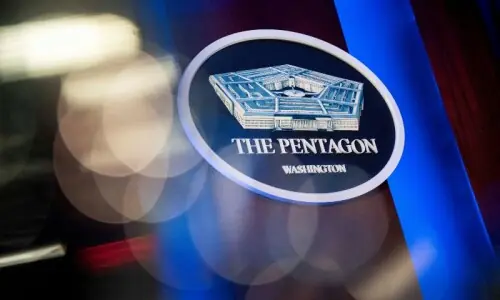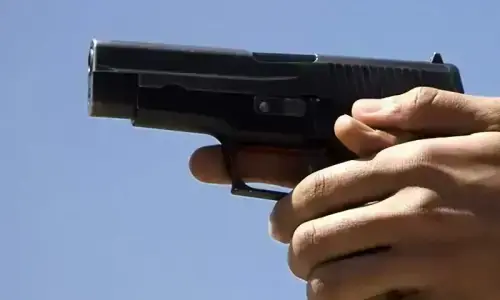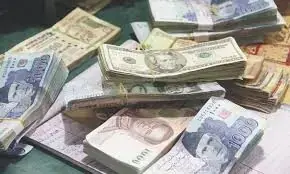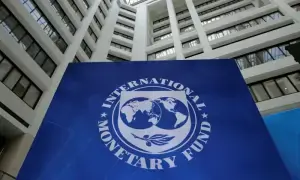BANGKOK: Within the space of three weeks, Sri Lanka’s Tamil Tiger rebels have earned unflattering stripes in Thailand, a country they once roamed freely in search of weapons for their separatist struggle.
Jut recently, the Thai navy named the Tamil Tigers as one of possibly two militant groups they suspected of trying to ship a cache of weapons from a resort island in southern Trang province.
On Wednesday, the navy mounted a dramatic strike — including a helicopter landing — to seize the weapons, which included 17 AK-47 assault rifles and over 1,000 bullets.
Also, two days before, three Sri Lankan men with alleged links to the Liberation Tigers of Tamil Eelam (LTTE), as the rebels are formally known, appeared in a Thai court to hear the dates being fixed for their trial in early 2004.
The men — Thevarajah Sasikaran, 29, from Vavuniya, a town that borders the territory under LTTE control in northern Sri Lanka, Aseervathan Sathyapavan, 34, and Gunapalan Sujith, 27, from towns in the Jaffna peninsula, were arrested by the police in the southern port town of Ranong in May this year.
The weapons they had in their possession included 10 9-mm Glock pistols with silencers, three 11-mm HK Mark 23 pistols and 45,000 rounds of ammunition. But what could probably most upsetting for the Tamil rebels, who have been trying to gain international respect during their current quest for peace with Colombo, is the notoriety they gained during the summit of 21 Pacific Rim economies held in Bangkok in mid-October.
The LTTE was the only militant group named in a background note issued by the Asia-Pacific Economic Cooperation (APEC) secretariat as the type of rebel organisation that had profited from the easy accessibility of man-portable air defence systems (MANPADS), such as the shoulder-fired anti-aircraft missiles (known as SAMs).
There are systems available in the Asia-Pacific region to purchase MANPADS from “regional black markets or stolen military stockpiles,” the background note read. “Sri Lankan insurgents acquired MANPADS via Cambodia”.
At the end of their two-day summit, APEC leaders, including US President George W Bush, resolved to crack down on any terrorist or “violent subnational groups” who sought MANPADS in the Asia-Pacific region.
The Bangkok Declaration called on the APEC member economies, which included countries such as Australia, China, Malaysia, Thailand and Singapore, to have strict domestic controls, to secure stockpiles and to take domestic action to “regulate the production, transfer and brokering” MANPADS.
For the LTTE, the combination of these three developments adds up to an uncomfortable reality — the erosion of the freedom they used to enjoy in Thailand to both secure arms and use the country as a transhipment point for weapons.
According to a South Asian diplomat, the climate in Thailand for the Tamil rebels will become increasingly difficult in the wake of Bangkok’s commitment to throw its weight behind the US government’s “war against terrorism”.
In fact, a mid-September decision by the Thai government of Prime Minister Thaksin Shinawatra echoed that view. Thaksin announced that he wanted to make this South-east Asian country “free of firearms” in five to six years’ time.
It was a statement aimed at the estimated 250 gun shops that dot this country, some of whom, according to the Thai police’s crime suppression division, have been a major supplier of weapons to militant groups waging violent campaigns in South and South-east Asia.
During the 1990s, the coast of southern Thailand, including the famed tourist resort of Phuket, was a pivotal pipeline to supply the LTTE’s strongholds in northern Sri Lanka with arms and ammunition.
Intelligence reports of that period point to four sources from where the LTTE’s chief arms procurer, Tharmalingma Shanmugham, alias Kumaran Pathmanathan, got weapons: Burma, Cambodia Thailand and even Vietnam.
“Cambodia has been one source from which the (LTTE got) SAMs,” Iqbal Athas, defence correspondent of Sri Lanka’s “Sunday Times” newspaper, told IPS. “SAMs have been very useful to the LTTE to curtail the air power of the Sri Lankan Air Force. They first used it in April 1995 to down two Avro aircraft.”
The LTTE is also known to have used Thailand’s Andaman coast to strengthen its capability to attack Sri Lanka’s navy. That included the training that members of its Sea Tiger Wing allegedly received from Norwegian ex-special forces to launch underwater demolition strikes.
Furthermore, a ranking LTTE member, Christy Reginald Lawrence, ran a shipyard in Phuket where, in 2000, the Thai police stumbled upon a half-built miniature submarine. A speedboat he owned also had propaganda material for the Tamil rebels, along with non-lethal material that could be put to potent use.
Thailand’s significance for the LTTE’s global arms procurement network was affirmed that year when the London-based shipping publication “Lloyd’s List” said that the islands off the country’s Andaman coast were strategic to the rebels’ shipping operations. According to “Lloyd’s List,” the Tamil rebels had set up shop along Thailand”s southern coast after they were asked to leave a Burmese island in 1996. “Thailand has remained an operational base (for the LTTE) over the years,” says Athas.
The choice of southern Thailand by the LTTE is logical, adds the South Asian diplomat, who spoke on condition of anonymity. “There is virtually a short and direct route from, say, Phuket to the northern coasts of Sri Lanka that the Tigers control.”
But as the past three weeks show, the Tamil rebels may no longer have as easy a run as before as Thailand appears keen on tightening the noose around the LTTE”s gun-running operations.
The expected trial of the three Sri Lankan men arrested for possessing arms underscores this shift even more than the verbal pledges made by Bangkok at the APEC summit. This is, after all, the first case of its kind in Thailand where three suspected Tamil rebels are being tried for the illegal possession of weapons. —Dawn/InterPress News Service.

